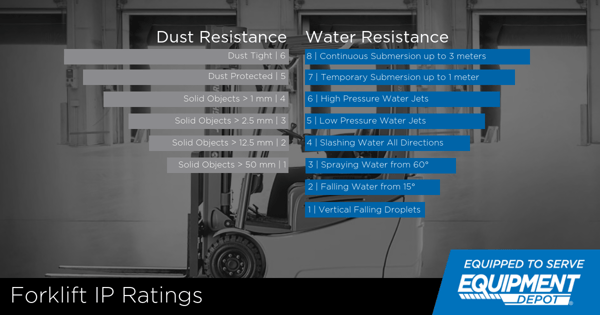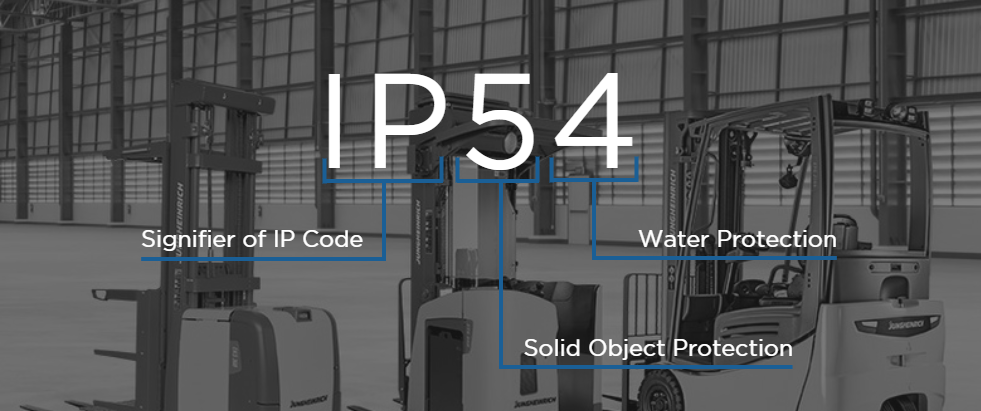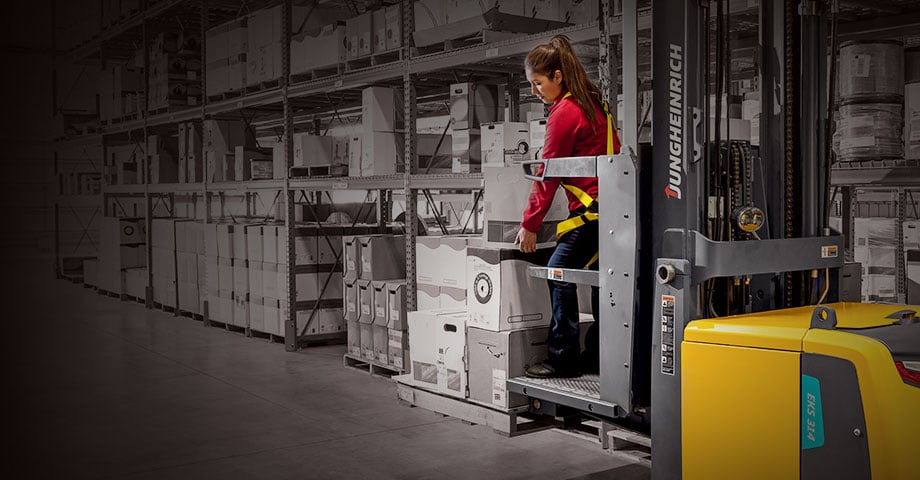IP Codes, sometimes referred to as Ingress Protection Markings, are an international standard for classifying the degree of protection a machine has against liquid and solid objects. Every forklift should have a code that will tell you what the forklift can withstand. The Ingress Protection Markings will be located on the rating plate, and once you have located that, you will be able to ascertain in what environments you can safely operate your forklift.
It is important to note that some parts of the forklift may have different ratings, and the lowest rating for any part is the official code for the machine. For example, the engine may have a code of IP56, but if the ignition has a code of IP44, the whole machine has a rating of IP44.
Why Does it Matter?
IP ratings are important for a few reasons. If your forklift’s code is high enough, you can feel confident operating it outdoors, even if it is raining. It can also help inform your decision when you are purchasing a forklift. If you know you will need a lift that can operate in a variety of environments, look for equipment that will be safe to operate in each scenario.
How Do I Read an IP Code?
An IP code consists of the letters “IP” followed by 2 digits. The first digit after “IP” denotes the machine’s protection from solid objects. The second digit denotes the equipment’s ability to withstand water.
.png?width=600&name=Forklift%20IP%20Ratings%20(1).png)
- Solid object protection ranges from 0 to 6, with 0 meaning no solid object protection and 6 meaning completely dust tight.
- Water protection ranges from 0 to 8, with 0 meaning no protection from water and 8 meaning capable of being continuously submerged in up to 3 meters of water.
For example, a forklift with the rating IP54 is protected from dust and can withstand splashing water coming from all directions. Below is a breakdown of what each number signifies.

The highest rating a forklift can get is IP68, meaning it is dust tight and able to be continuously submerged in 3 meters of water. However, since the need to submerge a forklift in water is fairly rare, you are not likely to find a machine with this rating. It is important to note that some specialty equipment has a rating of IP69X, but that is highly irregular.
What if the Code Doesn’t Follow the Standard?
There are a couple instances in which a forklift can have a code that does not have the standard rating formula.
When an IP code has an X where a number should be, it means the machine has not been tested. For instance, if a piece of equipment has a rating of IPX2, it means that the machine has no rating for solid object protection.
If a rating has a hyphen in it, such as IP5-6, it is not a true IP code. Genuine codes do not have hyphens and do not deviate from the standard format.
If you have questions about what type of forklift will best meet your needs, call us at 888.EQDEPOT or contact your local Equipment Depot sales representative.



